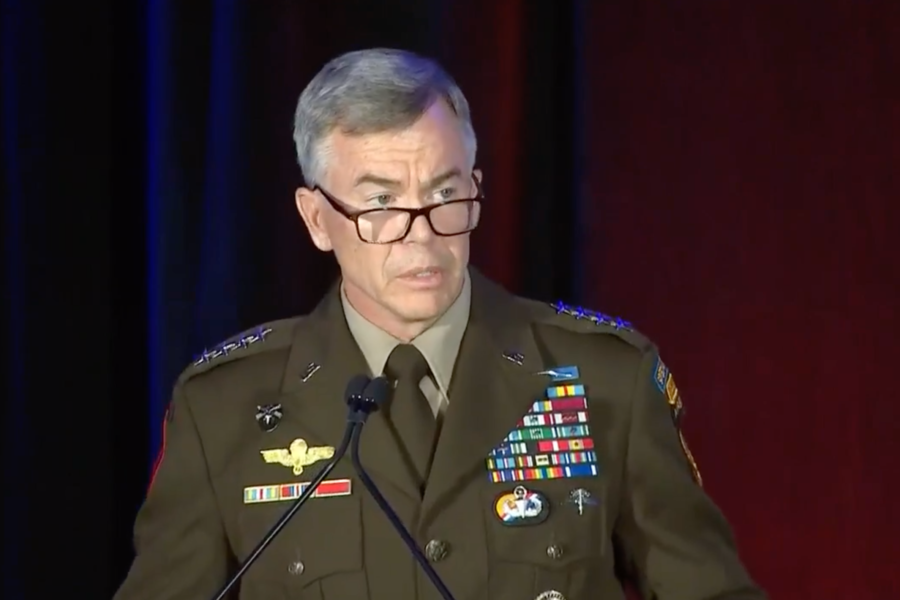Pentagon leaders sought to balance both the past and future of U.S. Special Operations Command on Aug. 30 as Army Gen. Bryan P. Fenton succeeded Army Gen. Richard D. Clark in a ceremony at MacDill Air Force Base, Fla.
One year to the day since the end of the U.S.’s withdrawal from Afghanistan, the proceedings were marked by reflections on nearly two decades of conflict in the Middle East, conflict that SOCOM often played a key role in.
“It was the quiet professionals of SOCOM who were among the first on the ground in Afghanistan in 2001,” Secretary of Defense Lloyd J. Austin III said. “And when I led troops in Afghanistan and Iraq and served as the CENTCOM commander, I relied on special operators and support teams for your skill, for your precision, and for your bold determination to confront any threat anytime.”
Clarke, along with Austin and Chairman of the Joint Chiefs of Staff Gen. Mark A. Milley, made particular reference to the ISIS suicide bombing that killed 13 service members Aug. 26, 2021, in Kabul, Afghanistan, during the withdrawal’s final days.
“One year ago last week, Army Staff Sgt. Ryan Knauss, one of our special operators, lost his life in a suicide bombing in Afghanistan. He was the last member of this command to lose their life in combat,” Clarke said. “When I had the honor of officiating the funeral at Arlington for Ryan, his family told me this: ‘Ryan genuinely loved serving this country. He started his service in the 82nd Airborne Division, but he especially wanted to strive to come and loved serving in our special operations forces.’”
At the same time, Clarke, Austin, and Milley all spoke of the department’s ongoing shift in focus toward great power competition and how it will affect the combatant command.
“The way we fought wars for the last 20 years is not the same way we’re going to fight wars in the future,” Milley said. “The special operations maxim of ‘The human is more important than the hardware’ will always be true. But we must arm our operators with the right equipment. We must arm them with the right intelligence. We must arm them with the right sensor fusion and data analytics. We must arm them with the right relationships and partners. And right now we are at an inflection point, a historical inflection point.”
In particular, Austin touted Fenton’s “extensive experience in the Indo-Pacific” as leaders continue to emphasize competition with China as the U.S.’s pacing threat.
Fenton, who previously served as commander of Joint Special Operations Command, was also “the first Special Operations officer to serve as a deputy commander at U.S. Indo-Pacific Command,” Austin noted.
Clarke told Fenton, “With a depth of experience in the Indo-Pacific, you’re already poised for our most pressing security challenges.”
China and the Indo-Pacific won’t be the only areas of concern, however. Fenton noted in his first remarks as SOCOM commander that Russia remains a priority—and over-the-horizon operations to counter terrorist threats in the Middle East will keep the command busy in that part of the world as well.
“Your special operations forces are ever more ready … ready to counter persistent threats from terrorist organizations and other actors like Iran, ready to respond rapidly to crisis when called,” Fenton said.

